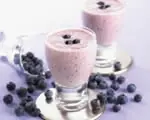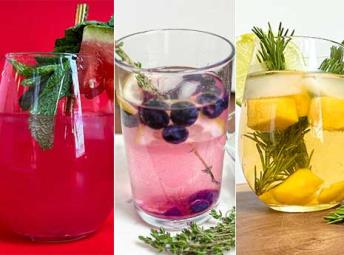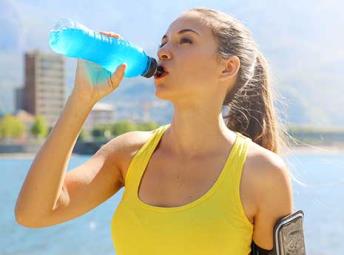
"Toss in the right ingredients, and shakes are fast, nutrient-dense meals or snacks that help you meet your protein, vitamin, calcium, healthy fat and fiber requirements--all with little clean-up," says Monique Ryan, M.S., R.D., an Illinois-based sports dietitian and author of Sports Nutrition for Endurance Athletes.
Smoothies, made with fruit and milk, provide an excellent way to add foods like berries, mango or pineapple into your diet--helping fulfill the Centers for Disease Control's Five-a-Day recommendation. And with half a cup each of milk and yogurt thrown into the mix, you'll also reach 30 percent of your daily bone-building calcium needs. But don't just stick with standard ingredients. "Who says you can't give tofu and peanut butter a whirl for a protein and good-for-you fat kick?" asks Ryan.
Smoothies are also excellent recovery drinks. Consumed as soon as possible after a workout, they have all the protein and carbs your muscles need to bounce back after sweating it out. Shakes can help "replace energy (glycogen) stores in one shot," says Ryan. Plus, for those with poor appetites following exercise, "it can be a lot easier on your stomach to drink, rather than eat, your calories," Ryan adds.
Guiltless smoothies
Post workout, it might seem faster and easier to stop at your local smoothie store than make your own, but becoming a regular can thwart the benefits of your exercise routine. Not all smoothies are created equal--some are more decadent milkshake than healthy snack, like Smoothie King's 32-oz. Hulk Chocolate that contains a whooping 1,269 calories and 44 grams of fat. To make your next juice bar experience a healthy one, make these smart, on-the-go selections:
- Keep it real: Juice concentrates, fruit purees, frozen yogurt, chocolate milk and syrups increase sugar and calories. Look for whole fruit or at least 100 percent fruit juice instead. The additional boon of fresh fruit is extra fiber, which makes your smoothie more filling.
- Go small: Extra ounces mean unnecessary calories. Stick with smoothies that are no more than 16 to 20 oz.
- Check the fine print: Know what you're drinking. Read nutrition information at the store or online.
- Sack the fat: Ice cream, whole milk and cream can have your strawberry smoothie competing with a fast food joint's chocolate milkshake in calories and fat. Choose shakes with lower fat ingredients like skim milk, soy, cottage cheese or low-fat yogurt. And although high in protein and healthy monounsaturated fat, peanut butter is best added in moderation since one spoonful contains 100 calories.
- Skip the Boosters: Be leery of extras such as energy and immunity "boosts"--many are only proven to lighten your wallet. Stick with the basics--low-fat dairy and fresh fruit--and you'll get all the nutrition you need.
- 1
- of
- 2







Discuss This Article